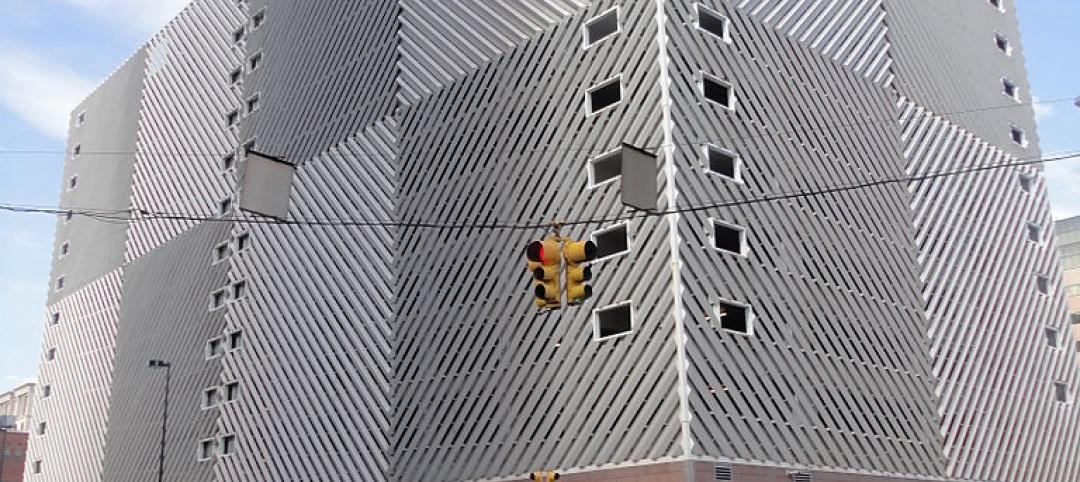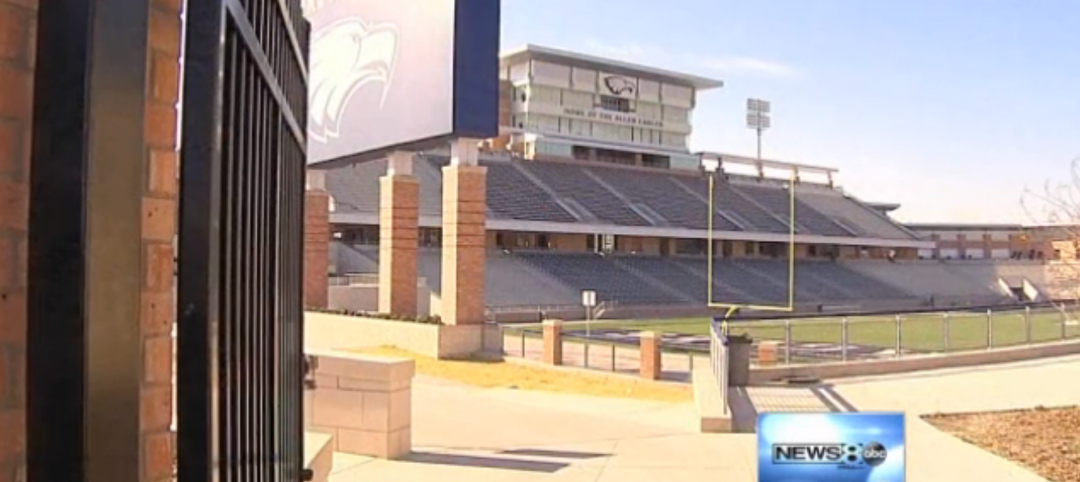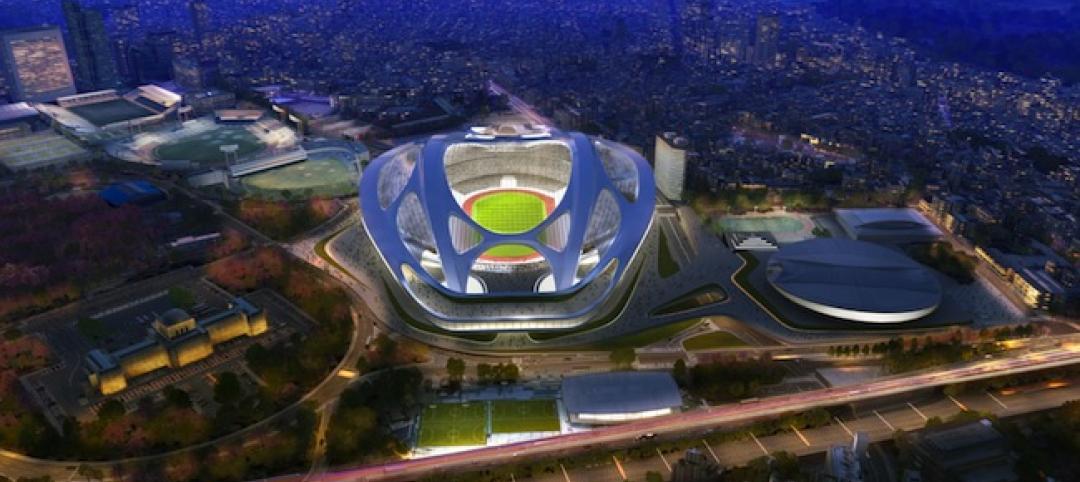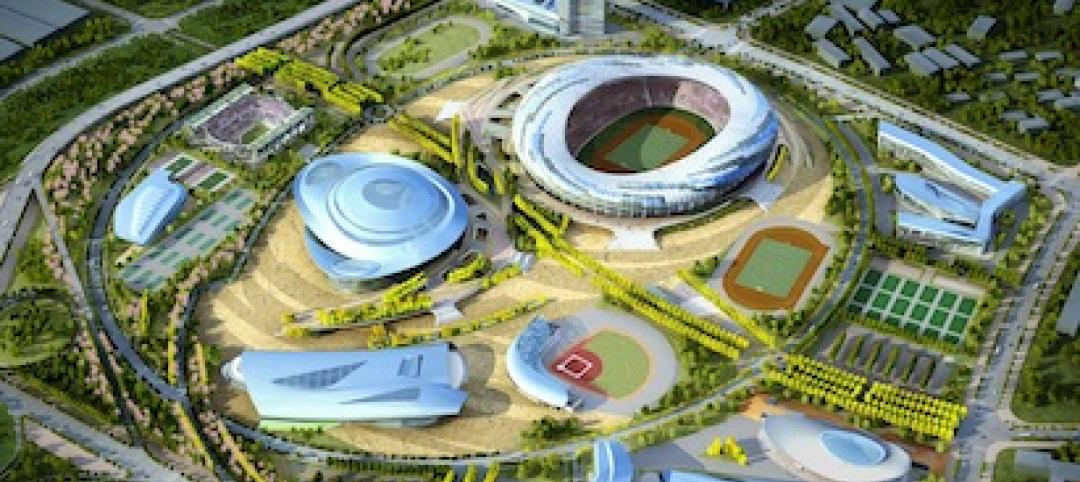The recently completed 530,000-sf University of Texas Moody Center is the new home for men’s and women’s basketball at the Austin campus. At full capacity, the arena, located in a former parking lot just south of Mike A. Myers Stadium, the home of Longhorn track and field and soccer teams, will seat 15,000 spectators.
The structure can also host more intimate events when a first-of-its-kind operable upper bowl closure screen converts the venue from 15,000 seats to a 10,000-seat configuration. Inside the building, the advanced roof structure supports amenities designed to make the building flexible for a variety of events: a central retractable video board and a 250,000-lb. show rigging grid including an extensive tension wire rigging platform.
These features are expected to make Austin a major destination for touring shows. The arena bowl precast seating units accommodate an efficient under-seat air distribution system, helping to make the Moody Center one of the most sustainable arenas in the U.S., according to a news release by structural engineer Walter P Moore.
The site presented a significant structural challenge due to slopes up to 50 feet moving from west to east. A deep retention system with heights up to 70 feet was employed, which is “unprecedented for an arena structure,” the release says.
Much of the arena is underground, and a concrete frame forms the primary structure of the building. Daylighting is provided at the upper concourse at the east side and the main concourse at the west side.
Around the perimeter of the building, the long-span steel roof cantilevers up to 75 feet beyond the edge, creating shaded entry spaces. The cantilevered roof floats above an extensive glass curtain wall.
The Moody Center replaces the Frank C. Erwin Center, a 40-year-old arena. That iconic structure was demolished to make way for the expansion of the Dell Medical School.
Owner and/or developer: The University of Texas System Office of Facilities Planning & Construction
Design architect: Gensler
MEP engineer: Henderson Engineers
Structural engineer: Walter P Moore
General contractor/construction manager: AECOM Hunt
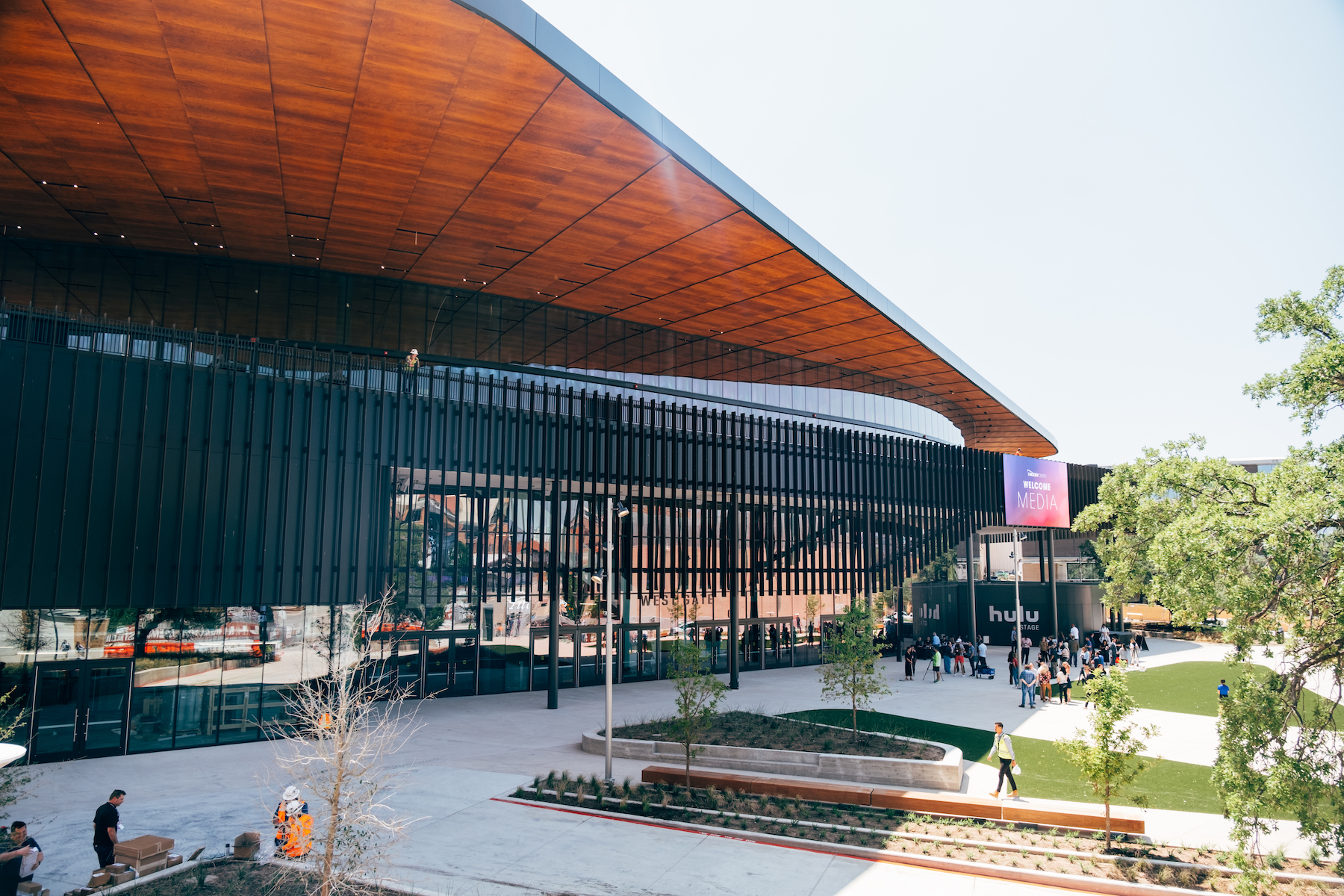
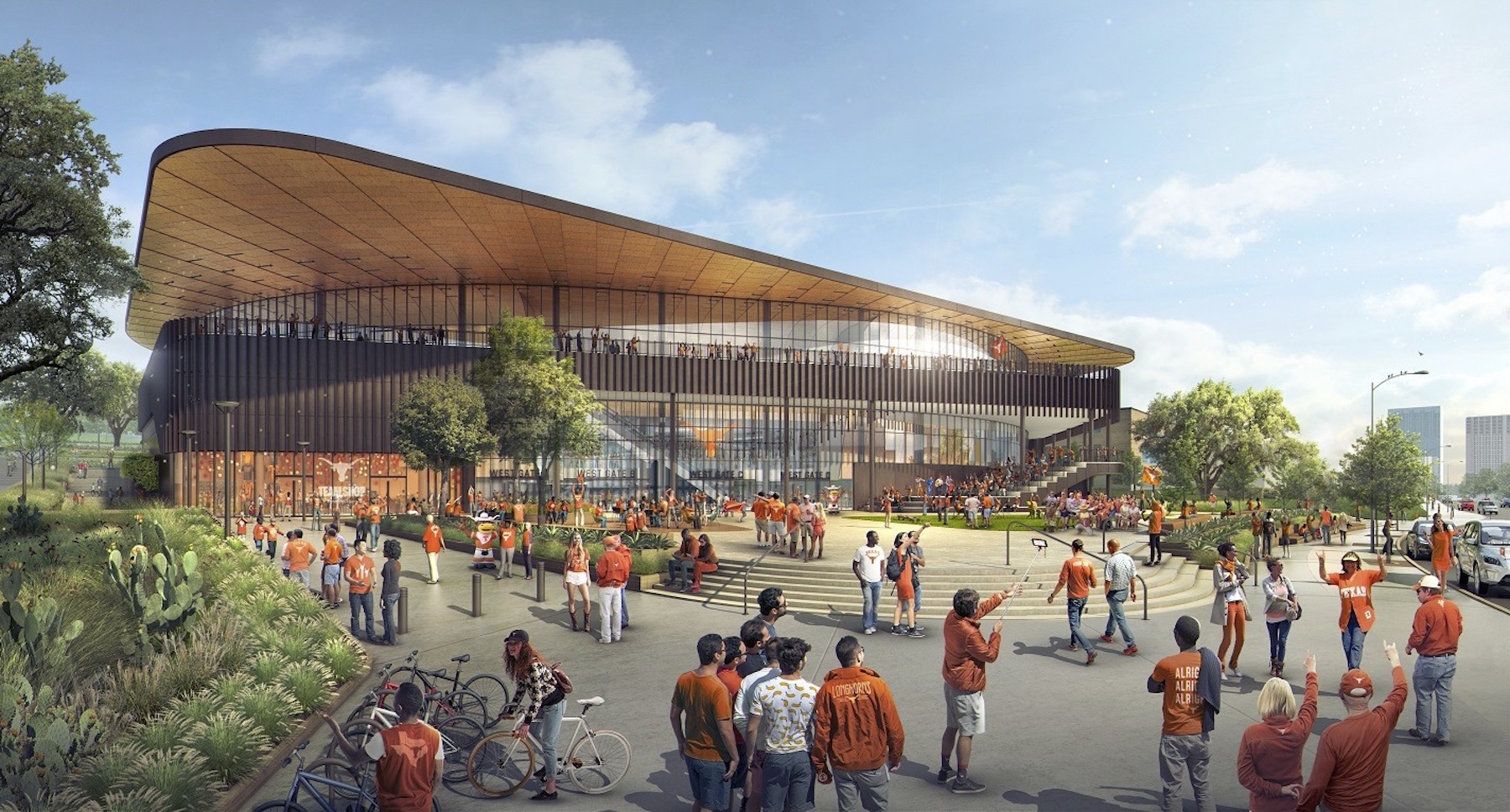
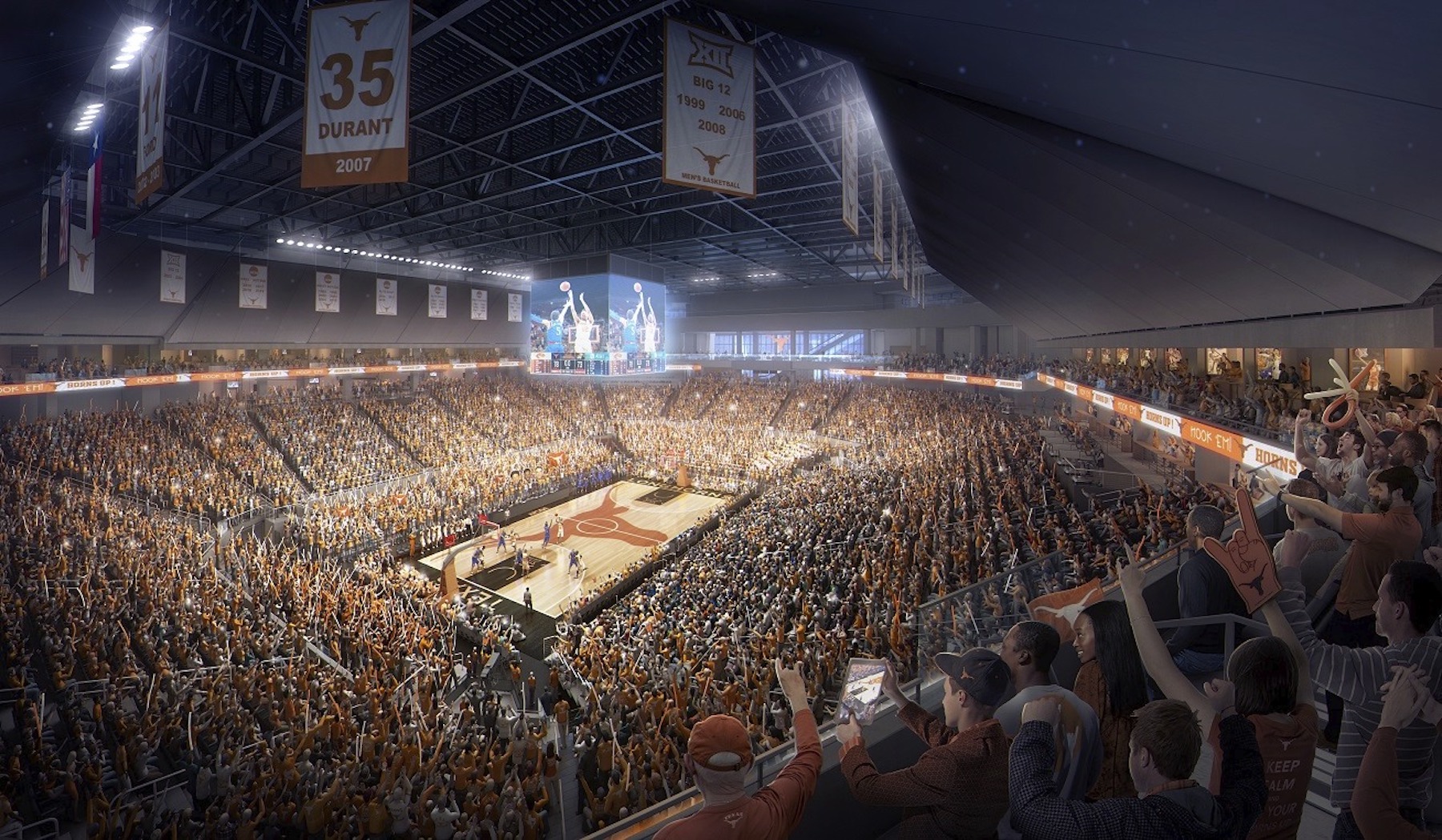
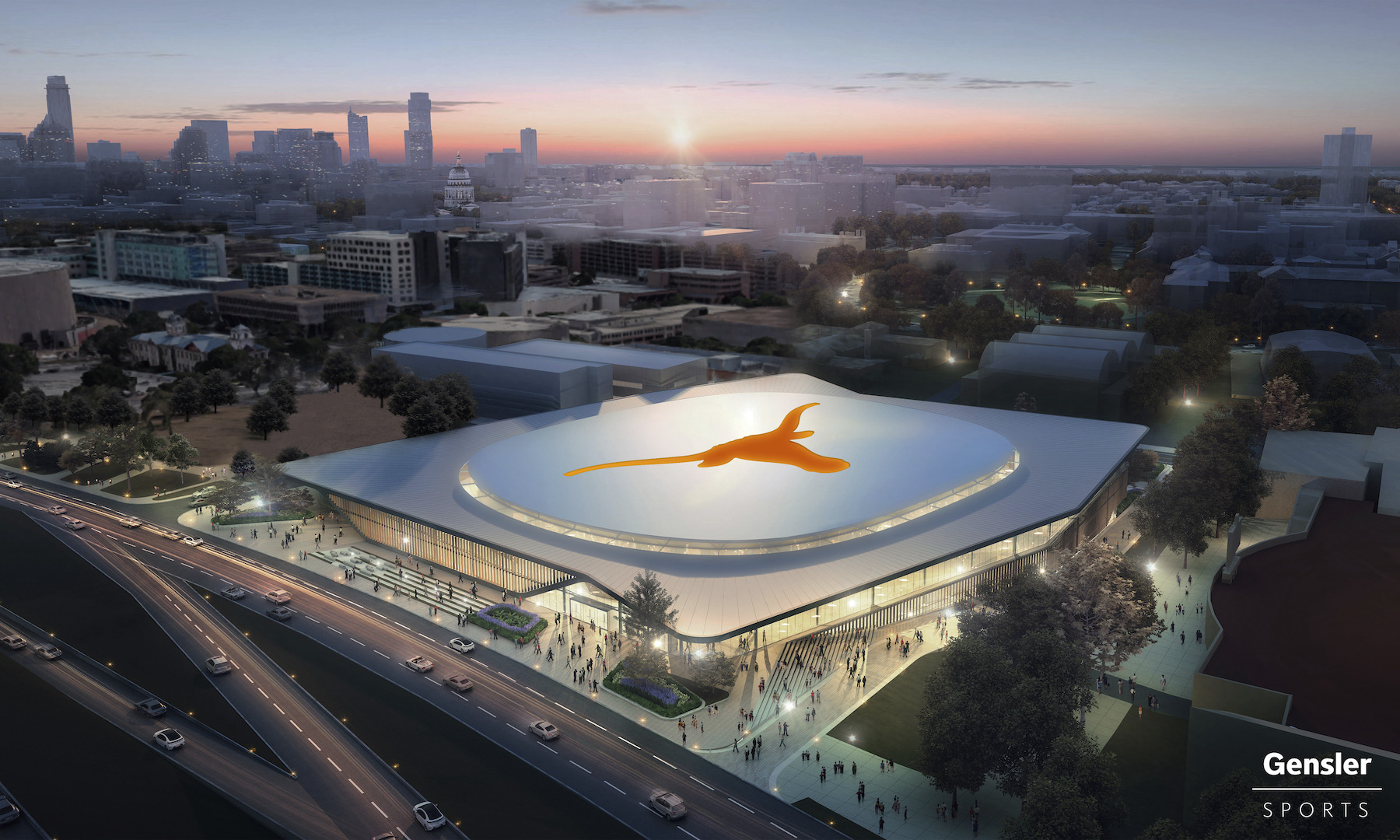
Related Stories
| Jun 12, 2014
Austrian university develops 'inflatable' concrete dome method
Constructing a concrete dome is a costly process, but this may change soon. A team from the Vienna University of Technology has developed a method that allows concrete domes to form with the use of air and steel cables instead of expensive, timber supporting structures.
| Jun 11, 2014
Esri’s interactive guide to 2014 World Cup Stadiums
California-based Esri, a supplier of GIS software, created a nifty interactive map that gives viewers a satellite perspective of Brazil’s many new stadiums.
| Jun 4, 2014
Construction team named for Atlanta Braves ballpark
A joint venture between Barton Malow, Brasfield & Gorrie, Mortenson Construction, and New South Construction will build the Atlanta Braves ballpark, which is scheduled to open in early 2017. Check out the latest renderings of the plan.
| Jun 2, 2014
Parking structures group launches LEED-type program for parking garages
The Green Parking Council, an affiliate of the International Parking Institute, has launched the Green Garage Certification program, the parking industry equivalent of LEED certification.
| May 29, 2014
7 cost-effective ways to make U.S. infrastructure more resilient
Moving critical elements to higher ground and designing for longer lifespans are just some of the ways cities and governments can make infrastructure more resilient to natural disasters and climate change, writes Richard Cavallaro, President of Skanska USA Civil.
| May 22, 2014
Just two years after opening, $60 million high school stadium will close for repairs
The 18,000-seat Eagle Stadium in Allen, Texas, opened in 2012 to much fanfare. But cracks recently began to appear throughout the structure, causing to the school district to close the facility.
| May 20, 2014
Kinetic Architecture: New book explores innovations in active façades
The book, co-authored by Arup's Russell Fortmeyer, illustrates the various ways architects, consultants, and engineers approach energy and comfort by manipulating air, water, and light through the layers of passive and active building envelope systems.
| May 19, 2014
What can architects learn from nature’s 3.8 billion years of experience?
In a new report, HOK and Biomimicry 3.8 partnered to study how lessons from the temperate broadleaf forest biome, which houses many of the world’s largest population centers, can inform the design of the built environment.
| May 16, 2014
Toyo Ito leads petition to scrap Zaha Hadid's 2020 Olympic Stadium project
Ito and other Japanese architects cite excessive costs, massive size, and the project's potentially negative impact on surrounding public spaces as reasons for nixing Hadid's plan.
| May 13, 2014
First look: Nadel's $1.5 billion Dalian, China, Sports Center
In addition to five major sports venues, the Dalian Sports Center includes a 30-story, 440-room, 5-star Kempinski full-service hotel and conference center and a 40,500-square-meter athletes’ training facility and office building.





